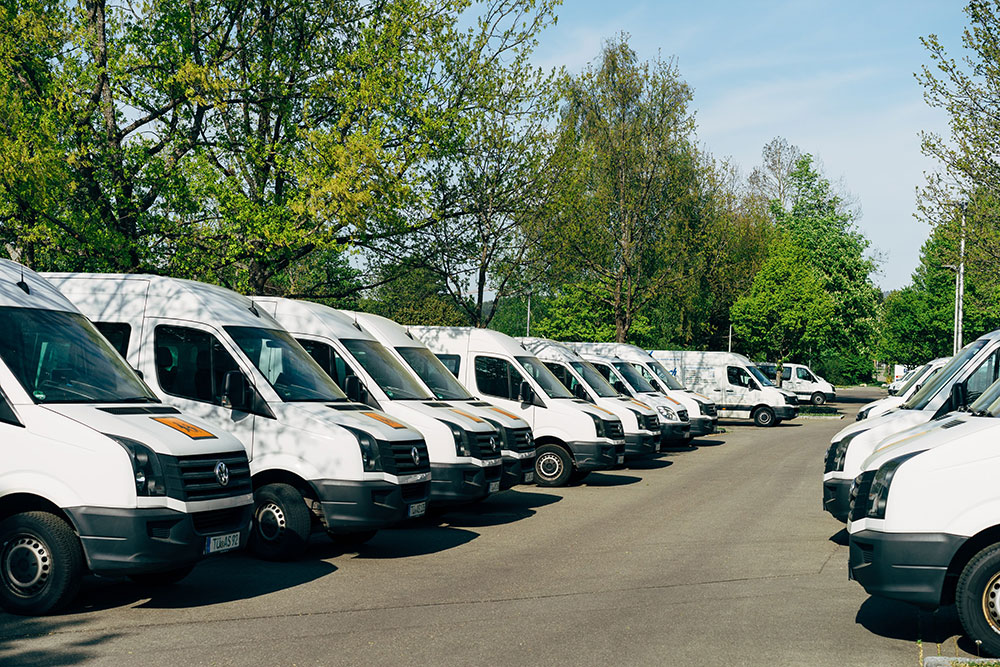If you’re trying to buy or sell a car for your business, what benefits can you expect? What are the tax liabilities and tax relief available when buying a business vehicle?
Whether or not you should purchase your car through your business typically depends on two issues – how your business operates, and how much you intend to use it for business use.
Your car as a fixed asset
If you purchase a car through your business, then it is counted as a fixed asset. Essentially, this means you can claim capital allowances on the purchase value of the car to reduce the taxable profit when filing your tax return. However, though it’s likely to be a major expense, the capital allowances for cars are less generous than some other business assets. You can sell your car anywhere to find the best price for your business, but it will remain a business asset.
When you buy a new laptop or mobile phone handset for business use, for example, the entire value can be claimed as a legitimate business expense. Cars, however, are assessed based on their CO2 emissions. They will either fall into the 18% main rate pool, or, more usually, into the ‘special rate pool,’ allowing you to offset only 8% of the car’s value against the year’s taxable profit.
Commercial vehicles are more business friendly
When it comes to capital allowances, a commercial vehicle is a better option for a business. If you buy a transit van, for example, it will qualify for annual investment allowance. This means you can offset the whole value of the van. However, if you also use the van for personal reasons, this needs to be kept track of, and deducted from capital allowances.
You can also claim capital allowances if you buy a business vehicle on finance, as long as the business does – or at least will – actually own it. Whereas there are no capital allowances given if your company simply hires or leases a vehicle.
Selling a commercial vehicle
It is worth remembering that when it comes to the tax benefits of capital allowances, if you have purchased a car or van through your business, there will be a ‘balancing charge’ – which will actually increase your tax bill if you later come to sell it.
This basically works in reverse of the original benefit received, so if your business has bought a commercial vehicle where the full value of capital allowances had been claimed, you will see a corresponding increase in your tax bill as a consequence.
Claiming VAT on a business vehicle
If you do decide to buy a business vehicle, it is possible to claim back the VAT on the purchase. However, the vehicle must be one that has never had any private use, such as a brand-new car or a car formerly used for business leasing.
You will also need to declare that the car will be used exclusively for business operations and will not be available for use for any personal or private reasons. This includes commuting to and from work.
Claiming back the VAT can be problematic
It is notoriously difficult to claim back the VAT on a work vehicle – and those that succeed are typically those cars that are based permanently on business premises and only used for business journeys.
Again, the situation is slightly easier if you buy a commercial vehicle. These still have to be used only for business – however, issues around them being available for personal use are less rigorously enforced. For example, it is possible for you to park your business van outside your house (as long as you were only using it for business) whilst legitimately claiming back the full VAT on the purchase.
Buying a car through a limited company
If your business operates as a limited company, it is worth remembering that – legally speaking – this means that it is a separate entity to its shareholders and directors. Consequently, if you buy a vehicle through your limited company, then the vehicle does not belong to you, it belongs to the company.
If you then use the company car for personal use, this is then classed as a ‘Benefit in Kind’ – which is liable for tax and NIC. The amount of benefit for a vehicle is not only dependent on its make and model, but also on the fuel type and level of CO2 emissions. The HMRC website contains a car benefits calculator to help you work out the level of tax.
Buying commercial vehicles as a limited company
When it comes to commercial vehicles – like company vans, for example – there is a standard benefit detailed on HMRC’s website. This is currently £3340 for the use of a van, and £655 for fuel for private journeys.
There is also a cost to the limited company. Regardless of whether it’s a company car or van there is Class 1A (Employers) National Insurance to pay on the value of the benefit. Benefits in Kind need to be reported via the company payroll on the P11D.
HMRC and buying a car as a business expense
If you decide to buy a car as a business expense, there are many factors that you will need to consider, depending on your personal circumstances, the organisational structure of your business, whether the business is VAT registered, and if you wish to use the vehicle for personal use.
However, another major consideration is HMRC – who will expect full record keeping when it comes to your business vehicle. This will mean saving all relevant documents and creating fully-delineated expense accounts, with supporting evidence such as receipts and invoices.









Leave A Comment